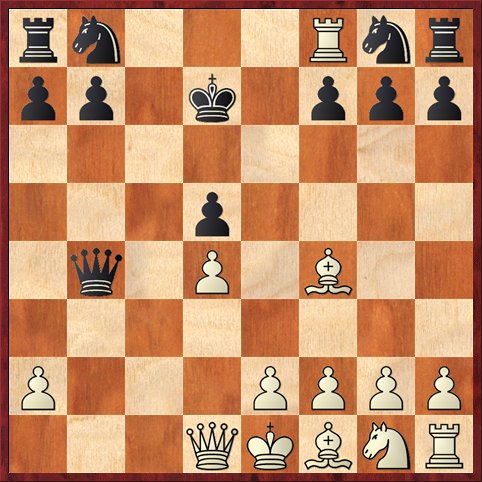In my last tournament I played against Michael Aigner in round one and lost, which prompted me to write this entry comparing our “rivalry” to Sylvester versus Tweety Bird. At that point my lifetime record against him stood at 1 win, 7 losses, and 1 draw, which is amazingly bad considering I beat him in the very first game we ever played.
Well, today my non-winning streak against Michael finally came to an end! I beat him in the first round of the Peoples Tournament. However, I am not going to show the game here because there’s really not that much to show. Michael overlooked a fairly simple tactic for me that won the exchange, and then the win was a “matter of technique” which, for a change, I managed not to mess up.
In round two, I played against Yian Liou, one of our many Bay Area wunderkinder. He had looked my openings up and knew that I play the Bird Variation against the Ruy Lopez, but nevertheless he was not able to get any advantage for White. He played the line advocated by IM Mark Ginsburg that I discussed in my post, “Bird by Bird, part 4.” It’s superficially an attractive line, because White wins a pawn, but Black equalizes easily — provided he doesn’t try to win back the pawn! That is where Ginsburg’s analysis was faulty, and presumably it’s also what fooled the young Mr. Liou as well. We agreed to a draw around move 25.
Cailen Melville and Thadeus Frei came with me; Cailen is playing in the 1500-1700 section while Thadeus (with a rating of 1903) had to enter the 1900-2100 section. Thadeus won his first game but, alas, his Fischer-like 12-game winning streak (!) came to an end with a loss in round two. Cailen likewise won in round one and lost in round two.
It was a long drive back (an hour and a half), so Cailen and Thadeus had time to play a couple of blindfold games. Just for fun, I’ll show you one of them, as it illustrates rather well the difficulties of blindfold chess.
Thadeus Frei — Cailen Melville
Somewhere in the Santa Cruz Mountains, 2010
1. c4 e6 2. Nc3 d5 3. cd ed 4. d4 c6
One of Thadeus’s opponents in the tournament played 4. … c5, transposing into the Panov Variation of the Caro-Kann, with colors reversed. Since Thadeus plays the Caro-Kann, he was happy. However, he eventually lost the game.
5. Bf4 Qb6 6. Rc1 …
Amazingly, we are already in a position that is not in ChessBase. In 29 games, White has played Qd2 every time but one. (The other game went 6. a3?!) This is surprising to me, because 6. Rc1 is actually a very reasonable move.
6. … Qxb2 7. Nxd5 …
Of course, this is the point. Now Black’s best is 7. … Na6, but Cailen played the “prove-it-to-me” move.
7. …Â cd 8.Rxc8+ Kd7 9. Rxf8? …
Better was 9. Rc2, when White has the advantage because of Black’s exposed king.
9. … Qb4+
And now a funny thing happened. Thadeus played 10. Bd2 and said, “You can’t take me because you haven’t moved your e-pawn yet.” As a spectator (Is it possible to be a spectator at a blindfold chess game?), I probably shouldn’t have said anything, but I couldn’t resist saying, “Yes, he did move it, on his first move of the game, so he can take.” Thadeus said, “Oops, I probably shouldn’t have said that.”
The funny thing is that I don’t think Cailen realized he was forking the king and rook. These long-distance moves are hard to see in blindfold, especially because this one has kind of tricky geometry. How often do you fork two pieces on e1 and f8?
However, with these clues Cailen was able to figure out that he could play 10. … Qxf8 and win the exchange. Here, ironically, the computer says that White is still better after 11. Qb3, forking the b-pawn and the d-pawn — a much more standard fork, so Thadeus probably should have seen it. However, he played 11. Nf3, which is also reasonable. As it turned out, Cailen quickly started losing track of all the threats against him, and lost in seven more moves!
All right, time to start thinking about today’s games.



